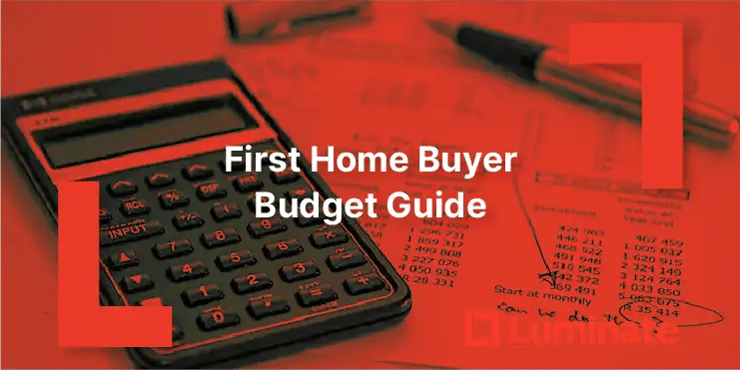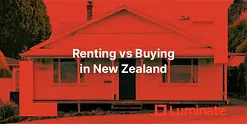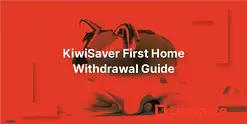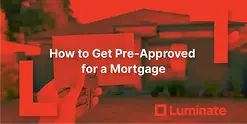How Much Can You Afford? First Home Buyer Budget Guide NZ 2025
 By
Trent Bradley
·
10 minute read
By
Trent Bradley
·
10 minute read

Quick Answer: New Zealand banks typically lend 5-6 times your annual household income, assuming modest expenses and debts. With a $130,000 combined income, you could borrow $650,000-$780,000. Your actual borrowing power depends on your deposit size (10-20%), existing debts, living expenses, and credit history. Always budget below your maximum to allow for rate increases and unexpected costs.
Table of Contents
- What Do Banks Look At When Assessing Your Home Loan?
- Understanding Deposit Requirements in New Zealand
- How Much Will Banks Lend You? Real Examples
- Hidden Costs of Buying Your First Home in NZ
- Creating Your Home Loan Repayment Budget
- Should You Buy at the Top of Your Budget?
- Regional Affordability Across New Zealand
- Frequently Asked Questions
- Final Thoughts
Key Takeaways
- NZ banks typically lend 5-6 times your annual household income—with $130,000 combined income, expect to borrow $650,000-$780,000 depending on debts and expenses
- Your deposit size dramatically impacts affordability: 20% deposit unlocks best rates and avoids low equity fees, while 5-10% deposits come with higher costs and stricter requirements
- Hidden costs add $5,000-$8,000+ to your purchase: budget separately for legal fees ($1,500-$2,500), building reports ($500-$800), LIM reports ($300-$400), and moving expenses beyond your deposit
- Credit cards severely reduce borrowing power—a $10,000 limit can slash what you can borrow by $50,000-$60,000, even with zero balance, so close unused cards before applying
- Never borrow your maximum approved amount: buy 10-20% below your approval limit to protect against rate rises, maintain financial flexibility, and reduce stress
- Ongoing ownership costs add $100-$200+ weekly: rates ($2,000-$4,000/year), insurance ($1,200-$2,500/year), and maintenance (1-2% of property value annually) must fit your budget comfortably
Buying your first home is a huge milestone. But before you start browsing listings or heading to open homes, the most important question to answer is: how much can you actually afford?
Your borrowing power is influenced by more than just your income. It also depends on your deposit, debts, spending habits, and the type of property you're looking to buy. At Luminate Financial Group, we help first-home buyers across Auckland, Wellington, Christchurch, and throughout New Zealand understand what they can realistically afford and how to plan a smart budget that supports long-term success, not just loan approval.
This guide will help you get clear on what lenders look at, how to build your home-buying budget, and what hidden costs to prepare for when buying your first property in New Zealand.
What Do Banks Look At When Assessing Your Home Loan?
When a New Zealand lender reviews your first home loan application, they assess much more than just your salary. Understanding these factors helps you prepare a stronger application and get accurate borrowing estimates.
Income Assessment
Lenders evaluate all sources of household income:
- Wages and salary (base pay is weighted most heavily)
- Commission and bonuses (usually averaged over 1-2 years)
- Rental income (if you'll continue renting out a property)
- Boarder income (some lenders accept up to $250-300 per week)
- Self-employment income (requires 2+ years of financial statements)
- Investment returns (dividends, interest from stable sources)
Income must be provable through payslips, tax returns, employment contracts, or bank statements showing consistent deposits.
Expense Analysis
Banks examine both fixed costs and discretionary spending:
- Fixed expenses: Rent, car payments, insurance premiums, childcare
- Discretionary spending: Groceries, fuel, entertainment, subscriptions
- Debt servicing: Minimum payments on all loans and credit facilities
Many first-home buyers underestimate how closely banks scrutinize spending patterns. Frequent overdrafts, bounced payments, or high discretionary spending can reduce your borrowing power significantly.
Existing Debt Obligations
Every debt counts, even if you're not using it:
- Credit cards (assessed at limit, not current balance)
- Personal loans and car finance
- Student loans (12% of income is deducted)
- Buy Now Pay Later accounts (Afterpay, Laybuy, etc.)
- Overdraft facilities
A $10,000 credit card limit could reduce your borrowing power by $50,000-$60,000, even if the card has a zero balance. Paying down or closing unused credit before applying can substantially increase what you can borrow.
Deposit Size and Source
Your deposit affects both approval likelihood and loan terms:
- 20% deposit: Access to best rates, no low equity fees
- 10-15% deposit: Possible but with low equity margins (0.25-0.75% higher rates)
- 5% deposit: Available through First Home Loan scheme only
Acceptable deposit sources include:
- Personal savings in your account for 3+ months
- KiwiSaver funds (minus $1,000 minimum balance)
- KiwiSaver HomeStart Grant
- Gifted funds from family (gift letter required)
- Inheritance (documentation required)
Credit History and Account Conduct
Lenders review your credit file and recent bank statements:
- Payment history: Late payments, defaults, judgments
- Account conduct: Overdrafts, dishonors, gambling transactions
- Savings patterns: Regular deposits showing financial discipline
- Credit applications: Multiple recent applications can be a red flag
Clean credit history and tidy banking habits can be the difference between approval and decline for borderline applications.
Loan Term Selection
Most first-home buyers in New Zealand choose 25-30 year terms:
- 30 years: Lower weekly repayments, more borrowing power
- 25 years: Higher repayments but significant interest savings
- 20 years: Substantial savings but requires strong income
Shorter terms mean higher repayments but you'll pay dramatically less interest over the life of your loan.
Stress Testing Requirements
All New Zealand lenders apply stress tests to ensure you could afford repayments if interest rates rise. Banks typically test your ability to service the loan at:
- Current rate plus 2-3%
- Or a minimum test rate around 8-9%
This protects both you and the lender from financial stress if rates increase unexpectedly.
Understanding Deposit Requirements in New Zealand
Your deposit is one of the most critical factors in your home loan application. Here's what you need to know about deposit sizes and their impact.
The 20% Deposit Standard
A 20% deposit is considered the gold standard in New Zealand because:
- You avoid low equity margins (0.25-0.75% rate premium)
- Access to best interest rates
- More lender options willing to approve your application
- Lower overall borrowing costs
- No requirement for Kāinga Ora guarantees
Example: $700,000 property = $140,000 deposit needed
Low Deposit Options (10-15%)
Buying with 10-15% deposit is possible but comes with trade-offs:
- Low equity margins add 0.25-0.75% to your interest rate
- Fewer lenders willing to approve
- Stricter income and expense assessment
- May require mortgage insurance
Example: $700,000 property = $70,000 deposit (10%) or $105,000 (15%)
You'll also need cash reserves beyond your deposit to cover:
- Legal fees ($1,500-$2,500)
- Building and LIM reports ($800-$1,100)
- Moving and setup costs ($2,000-$3,000)
First Home Loan Scheme (5% Deposit)
Through Kāinga Ora's First Home Loan programme, eligible buyers can purchase with just 5% deposit:
- Income caps apply ($95,000 individual / $150,000 couple)
- Regional house price caps vary by location
- Must use participating lenders only
- Longer approval timeframes
Example: $700,000 property = $35,000 deposit (if within price caps)
Deposit Boosters
Maximize your deposit using:
- KiwiSaver withdrawal (all contributions except $1,000)
- HomeStart Grant ($5,000-$10,000 per person)
- Family gifts (requires statutory declaration)
- Government schemes (First Home Loan, First Home Partner)
How Much Will Banks Lend You? Real Examples
Every lender has different criteria, but as a general rule, New Zealand banks will lend approximately 5-6 times your annual household income, assuming modest expenses and debts.
Single Income Examples
Income: $80,000 per year
- Potential borrowing: $400,000-$480,000
- With 10% deposit: Property up to $440,000-$530,000
- With 20% deposit: Property up to $500,000-$600,000
Income: $100,000 per year
- Potential borrowing: $500,000-$600,000
- With 10% deposit: Property up to $555,000-$665,000
- With 20% deposit: Property up to $625,000-$750,000
Couple Income Examples
Combined income: $130,000 per year
- Potential borrowing: $650,000-$780,000
- With 10% deposit ($75,000): Property up to $825,000
- With 20% deposit ($165,000): Property up to $950,000
Combined income: $160,000 per year
- Potential borrowing: $800,000-$960,000
- With 10% deposit ($95,000): Property up to $1,055,000
- With 20% deposit ($200,000): Property up to $1,200,000
Factors That Reduce Borrowing Power
These can significantly decrease what banks will lend:
- Credit card limits: $10,000 limit = -$50,000 borrowing power
- Car loans: $400/month payment = -$80,000 borrowing power
- Student loans: Reduces income by 12%
- High expenses: Above-average spending patterns
- Dependents: Children increase assessed living costs
- Self-employment: Often reduced to 80% of stated income
How to Maximize Borrowing Power
Increase what you can borrow by:
- Paying off or closing unused credit cards
- Reducing discretionary spending 3-6 months before applying
- Increasing your deposit size
- Clearing or consolidating small debts
- Improving credit score (pay everything on time)
- Getting a guarantor (parental support)
The best way to get an accurate borrowing estimate is to work with a mortgage adviser who can assess your position across multiple New Zealand lenders and find the best fit.
Hidden Costs of Buying Your First Home in NZ
The purchase price and deposit aren't the only costs to budget for. First-home buyers in New Zealand should prepare for these additional expenses.
Upfront Costs (Due Before or At Settlement)
Legal Fees: $1,500-$2,500 Your lawyer handles the property transfer, title checks, and settlement process.
LIM Report: $300-$400 Land Information Memorandum from the local council showing consents, rates, and property history.
Builder's Report: $500-$800 Professional inspection identifying structural issues, weathertightness, and maintenance requirements. Essential for older homes.
Registered Valuation: $700-$1,000 Sometimes required by lenders, especially for rural properties or unusual homes.
Insurance Premium: $1,200-$2,500/year House and contents insurance must be in place before settlement. Lenders require proof.
Moving Costs: $500-$2,000 Truck hire, professional movers, cleaning, and general relocation expenses.
Ongoing Costs (After Purchase)
Rates: $2,000-$4,000/year Payable to your local council from the day you take ownership. Varies by location and property value.
Insurance: $1,200-$2,500/year Annual premiums for house and contents cover.
Maintenance: $2,000-$5,000/year Budget 1-2% of property value annually for repairs and upkeep.
Utilities Setup Power connection, internet installation, water charges (if applicable).
Important Limitation
KiwiSaver funds can only be used for the deposit or settlement costs, not for legal fees, building reports, or moving expenses. You need separate cash savings for these costs.
Recommended buffer: Have $5,000-$8,000 in cash savings beyond your deposit for all the extra costs.
Creating Your Home Loan Repayment Budget
Once you know your purchase range, calculate what your actual home ownership costs will be each week.
Sample Repayment Calculation
Loan amount: $600,000
Interest rate: 6.5% per annum
Loan term: 30 years
Weekly repayment: Approximately $870
Add ongoing costs:
- Insurance: $40/week
- Rates: $60/week
- Maintenance fund: $50/week
- Total weekly cost: $1,020
Stress Test Your Budget
Ask yourself these critical questions:
Could I afford this if interest rates increased by 2%? At 8.5% interest, the same $600,000 loan would cost $1,065/week (principal and interest only). Total weekly cost would be $1,215.
Would I still be able to save or handle unexpected costs? Budget for car repairs, medical expenses, appliance replacements, and other surprises.
What happens if my income drops temporarily? Job loss, parental leave, illness, or reduced hours can impact your ability to pay.
Can I maintain this lifestyle long-term? Will you want to travel, have children, change careers, or reduce work hours in the next 5-10 years?
Using Your Current Situation as a Guide
If you're currently:
- Paying $550/week rent
- Saving $400/week consistently
This suggests you could sustainably afford around $950/week in total home ownership costs, leaving some buffer for rate increases.
The 30% Rule (Use With Caution)
Traditional advice suggests spending no more than 30% of your gross income on housing costs. However, in expensive New Zealand housing markets, this may not be realistic.
$130,000 household income = $2,500/week gross
30% = $750/week maximum housing cost
This might be unrealistic in Auckland or Wellington. Instead, focus on:
- What you can actually afford based on your current spending
- Leaving room for rate increases
- Maintaining emergency savings
- Quality of life considerations
Should You Buy at the Top of Your Budget?
Just because a bank will lend you $750,000 doesn't mean you should borrow the full amount. Buying at your maximum borrowing limit can create financial stress.
Risks of Maxing Out Your Budget
Interest rate vulnerability: If rates rise 1-2%, your repayments could increase $100-$200/week.
No financial buffer: Unexpected costs (car repairs, medical bills, job loss) become crises.
Lifestyle constraints: No money for holidays, entertainment, or personal goals.
Relationship stress: Financial pressure is a leading cause of relationship breakdowns.
Limited mobility: Can't easily sell or move if circumstances change.
Benefits of Buying Below Your Maximum
Financial breathing room: Ability to save, invest, and enjoy life while paying your mortgage.
Rate rise protection: Cushion against future interest rate increases.
Faster debt reduction: Extra money allows additional repayments, saving thousands in interest.
Life flexibility: Room for career changes, parental leave, or reduced work hours.
Stress reduction: Peace of mind knowing you can comfortably afford repayments.
The Sweet Spot
Many experienced mortgage advisers recommend borrowing 10-20% below your maximum approved amount. This provides:
- Sustainable repayments
- Emergency buffer
- Ability to maintain quality of life
- Faster equity building
Example: Approved for $750,000 → Consider borrowing $650,000-$675,000
Regional Affordability Across New Zealand
Borrowing power goes much further in some regions than others.
Auckland
Median house price: $1,050,000+
Income needed (20% deposit): $160,000-$180,000 household
Reality: Many first-home buyers start with apartments or townhouses
Wellington
Median house price: $850,000-$900,000
Income needed (20% deposit): $135,000-$150,000 household
Reality: Mix of apartments and smaller homes in outer suburbs
Christchurch
Median house price: $650,000-$700,000
Income needed (20% deposit): $100,000-$115,000 household
Reality: More accessible for first-home buyers
Regional Centers (Tauranga, Hamilton, Dunedin)
Median house price: $600,000-$750,000
Income needed (20% deposit): $95,000-$125,000 household
Reality: Growing markets with better affordability than main centers
Provincial Towns
Median house price: $400,000-$550,000
Income needed (20% deposit): $65,000-$90,000 household
Reality: Most affordable but fewer employment opportunities
Frequently Asked Questions
How do I calculate my borrowing power?
Multiply your gross annual household income by 5-6, then subtract any significant debts. This gives a rough estimate. For accuracy, use a mortgage calculator or speak with a mortgage adviser who can assess your specific situation across multiple lenders.
Can I borrow more if I have a larger deposit?
Yes, a larger deposit increases borrowing power in two ways: you need to borrow less for the same property, and banks view you as lower risk, potentially offering better rates and more favorable terms.
What's the minimum income needed to buy a first home in New Zealand?
This depends entirely on location and property prices. In provincial towns, household income of $70,000-$80,000 may be sufficient. In Auckland, you typically need $140,000+ household income for entry-level properties.
Should I use all my KiwiSaver for the deposit?
You can withdraw all KiwiSaver contributions except the mandatory $1,000 minimum. However, consider keeping extra in KiwiSaver if you're close to qualifying for higher HomeStart Grant tiers or if you'll need the funds for retirement soon.
How much should I keep in savings after buying?
Aim to keep 3-6 months of expenses in emergency savings after purchase. This covers unexpected repairs, job loss, or other financial surprises without needing to borrow or sell.
Do banks count my partner's income if we're not married?
Yes, de facto relationships are treated the same as marriages for lending purposes. Both incomes and both debts are assessed. Some lenders may require a longer relationship period (6-12 months) to include both incomes.
What if I'm self-employed?
Self-employed applicants need 2+ years of financial statements (usually tax returns and GST returns). Banks typically assess your income conservatively, often at 80% of declared income, and may require a larger deposit (15-20%).
Can I borrow for renovations at the same time?
Yes, many banks offer renovation lending as part of your home loan. The property must already meet minimum lending standards, and you'll need detailed quotes and plans. This is typically cheaper than separate personal loans for renovations.
Should I buy at the maximum amount the bank will lend me?
No, just because a bank approves you for a certain amount doesn't mean you should borrow the full sum. Buying at your maximum leaves no buffer for interest rate rises, unexpected costs, or life changes. Most advisers recommend borrowing 10-20% below your maximum approval to maintain financial flexibility and reduce stress.
How much do credit cards affect my borrowing power?
Credit cards significantly reduce borrowing power. A $10,000 credit card limit can reduce what you can borrow by $50,000-$60,000, even if the card has a zero balance. Banks assess credit cards at their full limit, not your current balance. Paying off and closing unused credit cards before applying can substantially increase your borrowing capacity.
Final Thoughts
Your first home should be a financial stepping stone, not a burden. Understanding how much you can afford gives you the power to make smart decisions, stay in control of your finances, and enjoy the journey into home ownership.
The gap between "maximum approved amount" and "comfortable sustainable amount" can be significant. Prioritize long-term financial health over short-term property aspirations. Buying a modest first home you can easily afford often leads to better outcomes than stretching for a dream home that creates financial stress.
At Luminate Financial Group, we work with first-home buyers across New Zealand to calculate borrowing power, compare lenders, and structure loans that fit your lifestyle—not just your bank's formula. We help you understand the real numbers and make decisions that support your financial wellbeing for years to come.
Ready to know exactly what you can afford?
Book a free First-Home Budget Session with Luminate. We'll show you your borrowing range across multiple lenders, review your deposit and goals, and help you prepare for every part of the journey—from application to settlement.
📞 Call 0800 333 400
📧 Email askus@luminate.co.nz
🌐 Visit luminate.co.nz
Luminate Financial Group - helping first-home buyers in Auckland, Wellington, Christchurch, and throughout New Zealand since 1998.

Trent Bradley
Trent Bradley is a New Zealand financial advisor specializing in property-backed finance and investment consulting. With over 26 years of experience running his mortgage broking business, he has helped wholesale investors access high-yield property-backed loan opportunities. For the past 12 years, Trent has led Luminate Finance, a New Zealand finance company dedicated to connecting investors with secure property investment solutions.


























